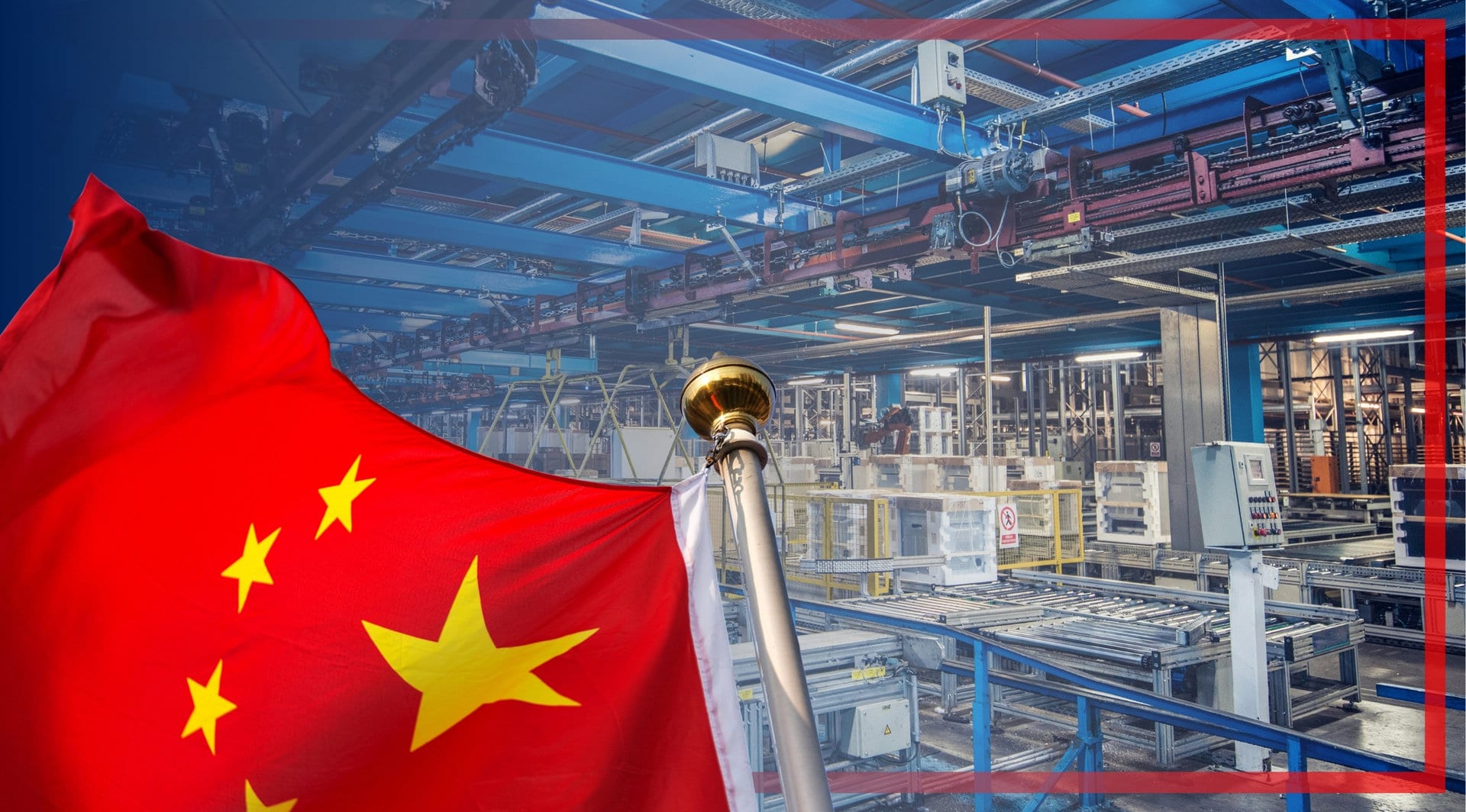A global pandemic or a national lockdown appears to be no barrier to the rising regulations that seem to continue the compliance paper trail for many of the largest corporations around the world, but is it all bad? With news about mHREDD and MLARS, and a system involving a Red Flag, not to mention ESG. It can appear hard to keep up with them all, let alone understand them if you are the Founder of a new fintech Startup or running the compliance division of a financial institution.
For the last few weeks we have been bringing the latest news about AML as well as updates on the recent #FinCEN leaks. In the meantime a story was ‘flagged’ about one of the leading data-focused financial technology businesses that delivers data, analytics and targeted workflows to financial institutions around the world: Refinitiv:
The acquisition of The Red Flag Group by @Refinitiv comes at a time of rapid growth in the market for due diligence solutions and services. Full press release: https://t.co/AyF183qSyK #Refinitiv #DueDiligence #FightFinancialCrime #TrustedData pic.twitter.com/tVp61kFiMj
— The Red Flag Group (@TheRedFlagGroup) October 5, 2020
#DisruptionBanking spoke with Charles Minutella, Head of Due Diligence services at Refinitiv about the acquisition and what key areas of Regulatory Compliance it might address for their customers. He shared the following:
“There are several key regulations / proposed regulations we are following that led us to the investment in Red Flag Group including the Department of Justice guidance on Corporate Compliance programs.”
The report covers three big topics: A corporations compliance program and its’ design, whether it is being applied earnestly and in good faith and finally does it work at all.
In our piece earlier this week we mentioned that a UK Government report suggested that many companies are reporting suspicious transactions to the UK Financial Intelligence Unit mainly because they wanted to avoid a law suit. In the US, the Department of Justice seems to be wise to this, and instructs prosecutors to probe specifically whether a compliance program is a “paper program” or one “implemented, reviewed, and revised, as appropriate, in an effective manner.”
Fines like the one handed down to Airbus also encouraged Refinitiv to acquire The Red Flag Group:
Airbus: Five takeaways for compliance officers everywhere https://t.co/2GfEKYiyLV #fcpa
— FCPA (@FCPA) February 17, 2020
“Another key regulation we are following,” continues Minutella, “is the EU Commission’s proposed regulation for mandatory due diligence on supply chains – focused on Environmental and Social factors. The proposal is sweeping and the rationale is that companies are not complying with guidance given by the UN and the OECD for responsible business conduct.”
The EU has always had a fundamentally “Green” policy which it continues with the current #EUGreenDeal, the EU is also known as a leader in ESG reporting as reported in one of our pieces in July. However, words like ‘sweeping’ and ‘mandatory’ may sound very severe, with regulation already very cumbersome in the EU. The new ‘mandatory human rights, environmental, and good governance due diligence legislation’ or mHREDD as some know it by, is a top priority for 2021 that is being developed by the European Commissioner for Justice, Didier Reynders. There are many sub-sections of the Draft Report so far and it can be hard to navigate:
The @EU_Commission has launched its public consultation on sustainable corporate governance. 🇪🇺
— Didier Reynders (@dreynders) October 26, 2020
This initiative has the potential to fundamentally change the way we think about corporate governance. ♻️
Your opinion is important❗️
👉🏻 https://t.co/KD8dXYnSe9 pic.twitter.com/d6UHiiN1eZ
To understand what the EU Commission is planning #DisruptionBanking spoke with Jacquelyn MacLennan, Brussels-based partner of White & Case LLP. She is experienced in developing strategy and running major international cartel investigations and is a specialist in Business & Human Rights issues generally. We asked her about the circumstances surrounding the importance of ESG in the light of recent EU initiatives in this area:
“Companies for years have had to deal with other high risk areas of law, for example anti-corruption and antitrust law. Why are these such a priority for companies? Because there are very serious repercussions for companies if they break the law. There are major sanctions – fines for firms and imprisonment for individuals – and companies can face serious civil actions.
“ESG is very different, it is an area of law that is still being developed. The “E” and environmental law is ahead and companies are more attuned to the needs to comply with environmental law. The “S” covering social or non-environmental “Sustainability” is the most under-developed part of ESG. However, this is changing fast, particularly as regards respect for human rights on a global basis.
“When I was a student, human rights law was considered to be something rather arcane. Many of those who studied human rights law felt that their vocation would lead them to roles in organizations such as the UN or an NGO, trying to ensure that countries were developing human rights standards and implementing the International Human Rights law., But now, this area of law has become much more important in the business world.
“As companies have globalised and become larger and more powerful, there is an understanding that the corporate responsibility to respect human rights is every bit as important as relying on countries to enforce human rights standards set at the international level.
“In 2011 a set of hugely important principles were adopted: the UN Guiding Principles on Business and Human Rights, or UNGPs. They set out a very clear framework regarding the corporate responsibility to respect human rights, and the need for effective remedies. A number of companies have said they will respect UNGPs, and a number of companies have signed up to the UN Global Compact and confirmed they will respect international human rights principles.
“But this is not enough. Relying on voluntary standards is not going to get us to where we need to be in ensuring sustainability. There has to be a legal framework put into place. A lot of companies want these tougher laws as they believe there should be a level playing field. While they may respect the requirements of the UNGPs, their competitors may not.
“Those that already take their responsibilities seriously will be ahead when mandatory requirements to carry out due diligence of their operations, and wider supply chains, are adopted. It is also important to have harmonised, clear and unambiguous standards for carrying out due diligence, so that this can be relied upon by wider stakeholders. Without this, there is always a risk of “blue washing” like “green washing”, where some corporate claims may not stand up to objective verification.
“Companies that are implementing serious ESG standards that are transparent and accountable are companies that investors will want to invest in going forward. But these standards have to be meaningful, reliable and apply uniformly. So mandatory non-financial reporting requirements are a key part of the legal framework.
“The human rights due diligence initiatives we see at the moment are important further steps in establishing a very clear legal framework so that the investment community can look at companies and say, for instance, in this “S“ area, or the human rights area: we can rely on what this company is doing; we can see that they are complying with standards which are transparent and unambiguous and by which a company can be held fully accountable.”
Very recent high-profile cases surrounding companies such as Apple, not to mention other stories from earlier in the year about NIKE, BMW and others highlight the level of importance that corporations have to appoint to human rights abuses in their supply chains. The Financial Times recently highlighted such a story:
Apple has stopped giving “new business” to its second-largest iPhone assembler Pegatron after the company used illegal student labour.
— Financial Times (@FinancialTimes) November 9, 2020
Students told the FT they had been forced by their schools to intern at the plant near Shanghai in order to graduate https://t.co/MaLLue35xc
“I tell my clients who come to talk about anti-bribery and antitrust risks that. ESG is going to be as much a risk issue in the future for them as anti-bribery and antitrust are today. They are well acquainted with the need for compliance programs to mitigate their anti-corruption and antitrust risk, but they need to take the same approach to their ESG risk too.
“The earlier you get into a position that you know what is happening in your supply chain, the better you will be prepared for the changing legislative landscape that we are facing in the future.
“I believe the role of the investment community is also key to making effective change. The more that investors make decisions based on ESG criteria that they can trust, the better it will be for sustainability in the long term.
“10 years ago a sustainability focus was a ‘nice-to-have’, today things have changed dramatically.
“For Fintech the challenge is also there with sustainability. Going forward any company with employees worldwide, with any product with a battery in it, has to be aware of ESG.
“Child labour, forced labour is a real issue. There are up to 40 million slaves in the world today and everybody thinks it is yesterday’s problem. It is not.” MacLennan concluded.
There are lots of different types of ESG reporting tools on the market at the moment. Indeed, we wrote about BlackRock’s Aladdin and State Street’s acquisition of Charles River in June. Aladdin is already a leading platform for sustainable ESG data and analytics. But with all the regulation still growing globally, having a good investment strategy platform is no longer enough, you need more.
“There is a growing interest in opening up ESG investment strategies to private companies.” Minutella told #DisruptionBanking, “Since most ESG data is self-disclosed, and private companies are not required to make these types of disclosures, it can be difficult to find the right data to make informed decisions. Red Flag Group has a core competency in evaluating private companies, typically with low profiles, to determine a wide set of risk, including ESG, which is aggregated from public sources and on the ground intelligence. We believe this will provide the investment community with much more insight than they have today.”
The competition in the sector is growing, with The Red Flag Group addition bringing even greater capabilities to Refinitiv in jurisdictions like China, Eastern Europe and the Middle East.
There is a lesson in what Refinitiv is doing for many fintech StartUp founders in the Data Analytics or perhaps, in the near future, in the ESG sector. At the same time a household name in financial data analytics has added a forward-thinking service element to their portfolio of services during a time where Sustainability continues to grow in relevance across so many sectors of both the corporate world as well as the StartUp community.
#greenwashing #bluewashing #Refinitiv #DueDiligence #mHREDD #FightFinancialCrime #TrustedData #StopDirtyMoneyEU #UNGPs
Author: Andy Samu















